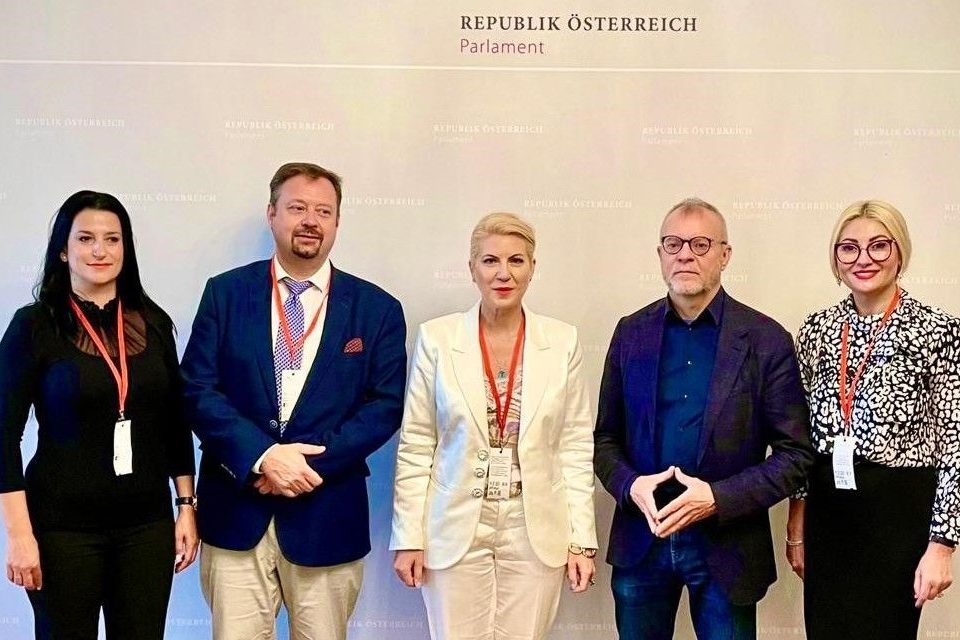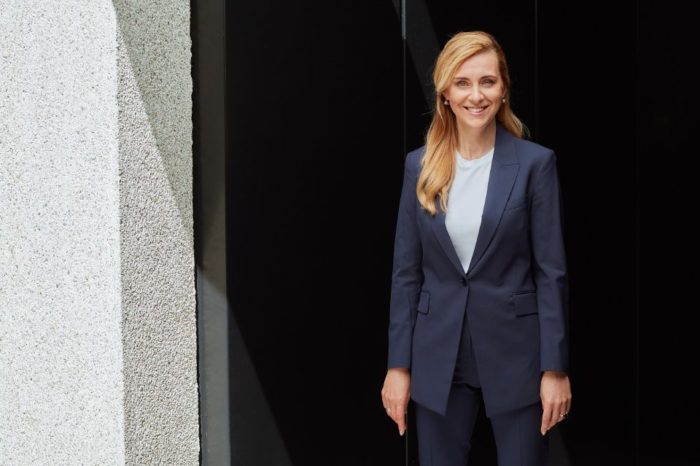Cristina Chiriac, CONAF: “Vocational education is an opportunity, not an inconvenience”

The signatories of the “Pact for Entrepreneurial Education”, Cristina Chiriac – President of the National Confederation for Female Entrepreneurship – CONAF and Franck Neel – President of the National Federation for Oil and Gas – FPPG were invited by Harard Troch, Member of the Austrian Parliament, to participate these days in the presentation of the successful model of the Austrian dual education system and of the possibilities that vocational education can offer to young people.
The meeting at the Austrian Parliament includes, in addition to occasional discussions on vocational and vocational education, a working visit to two vocational schools. Austrian vocational schools offer more than 200 fields of education geared to the needs of companies and maintain very intense contact with industry.
Cristina Chiriac, President of CONAF, states: “In Romania, young people who do not have the necessary skills or do not have vocational training, face specific barriers in terms of access to the labour market. I think it is time to come up with a new approach: to understand that vocational education is a huge opportunity for young people, not an inconvenience! That young people who study in a vocational school will have real chances on the labour market through the qualification they will obtain after the years of practice. A real balance between the requirements of the labour market and the educational system, corroborated with the stimulation of young people who choose vocational school through financial and fiscal means is the key to success in changing mentalities and implementing in Romania a vocational education system, vocational generating value on labour market and in the economy ”.
For his part, FPPG President Franck Neel said: “Employers play a key role in identifying sustainable jobs for young people and creating training opportunities. An early link between young people and employers, through dual education, is also important because in this way companies can become aware of the problems that young people face and can provide support to employers to understand and address these issues ”.
35% of Austrian children completing eight grades choose to study at a vocational school and over 40% choose vocational education following various courses especially in tourism, this being an important pillar of economic development of the country, which represents over 15% of GDP and last year, in a pandemic year, tourism revenues accounted for over 38 billion euros. Each student attending a vocational school is financially stimulated with a gross income of between 450-995 euros per month, most of them doing internships at a private company. At the end of their studies, young people will graduate from vocational school with a qualification and will be able to quickly integrate into the field of work, the emphasis being mainly on the practical side, 80% of the time being allocated to practical activities and only 20% for theoretical study.
“The dual system through which young people become professional at work and vocational school, provides a high degree of qualification and an increased opportunity to integrate young people into the Austrian labour market. For our economy, this type of education is a very important factor in the future development of young people. With a qualification, they can get well-paid jobs and integrate much faster into the labour market. I appreciate and thank the President Cristina Chiriac for her active involvement in the educational field and I want our model to be an example in order to be able to improve the educational system in Romania as well “, said Harald Troch.
In Austria, both in vocational schools and in vocational training schools, the dual training system is applied – the combination of theory and practice. Curricula or key points of training are adapted to the needs of the economy. Thus, the apprentices are trained in enterprises on various trades or do internships here. This combination is considered to be exemplary throughout Europe and is a key factor in the success of the Austrian economy.
The CONAF delegation consisted of Cristina Chiriac, president of CONAF and Nicoleta Munteanu, vice president and coordinator of the Entrepreneurship Education Commission within CONAF.















